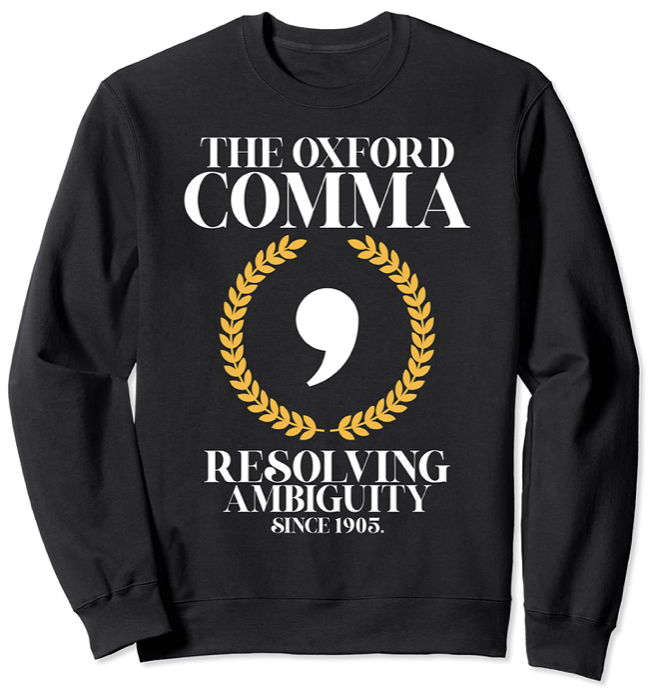I was so excited to write my first article for the Fieldston News as the Arts and Culture Columnist. I opened up the Writer’s Guide and eagerly began to explore. Only seconds had passed before something caught my eye and I ceased scrolling, horrified.
“No Oxford Commas,” the Number One Writing Rule asserted. An example followed – pancakes, eggs, and coffee – and beside it was the ever-condemnatory word, in all caps, WRONG.
My heart dropped so low it may have hit the earth’s core. Disturbed, devastated, distraught – I felt all the negative emotions in the dictionary.
The Oxford Comma is perhaps the most polarizing but most powerful punctuation mark.
In a list, it comes between the penultimate item and the conjunction. It is quintessentially about clarity and inclusion. I believe it is an utter abomination that this paper does not make room for it in its pages.
The Oxford Comma serves many purposes. Above all, it resolves ambiguity. Consider the subtle grammatical difference between the following two sentences:
I love my parents, Pete Davidson, and Barbra Streisand.
I love my parents, Pete Davidson and Barbra Streisand.
The former sentence is true, and the latter is a lie (no matter how deeply I wish it were not). The comma wholly changes the meaning of my statements.
The Fieldston News likely does not care for this semantic conflict. It only cares that it follows the AP writing style, which does not deploy the comma. I find it strange, though, that at a school founded on the value of challenging societal norms, we blindly accept established writing standards, even as they contravene comprehension. It is a fundamental insult to our mission to continue in this way. We must put an end to it.
I recently sat down with my friend Elizabeth Walker (V), a managing editor of The Fieldston News, to express my frustration. She told me that at the first news meeting this year, the editors vowed to keep a record of writers who stooped to using the Oxford Comma. This would create a taboo around the punctuation, hopefully dissuading people from trying it.
I heard from journalists that this stigma was affecting their engagement with the paper.
Alejandra Chavez-Flores (V), the Humanitarian Columnist, puts the Oxford Comma in her articles, even though she knows it will be edited out. She calls this practice her “little protest” and immensely resents that she cannot write in her preferred form.
Dani Budoff (V), the Social Media Manager, has been on the fence about writing for the paper for a while. A policy change regarding the comma would tip her over the edge. “If the News were to make this radical transition, I definitely would write for it,” she said.
Giving current and prospective writers the option to include the comma is the ethical thing to do. People should be able to write in a way that feels natural to them. For some, it is profoundly uncomfortable to leave the spot before a conjunction bare. They feel as though the comma’s absence disrupts the pattern and pulsing of the sentence. Budding young journalists should not be forced to write in a voice that is not theirs.
Some may say all this commotion over a comma is unwarranted. But the language we use matters. As English teacher Ms. Stabenau wrote to me, carefully choosing her punctuation, “a little flick of the pen has great power!”
And I completely agree. It is time that the Fieldston News stops blindly following the AP style and starts consciously questioning the journalistic status quo. It is time to make room for all writers’ voices, not just comma-less ones. It is time we recognize that punctuation matters?






